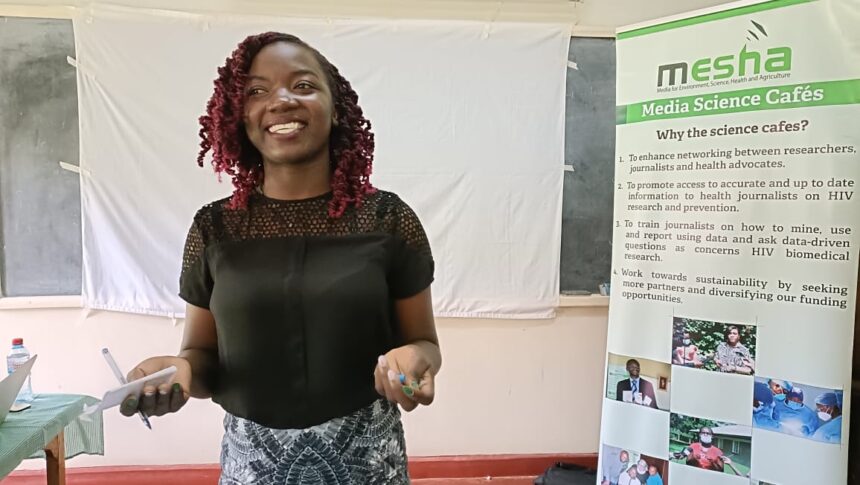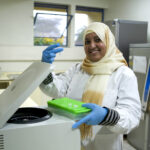By Oda Audry | odaaudry@gmail.com
When Angeline Ochieng’ stepped into the newsroom of a local media house in Kisumu nearly five years ago, she was very clear that her forte was in court reporting.
In her wild dreams, did she ever think of becoming a health reporter. Not until she met one Aghan Daniel, the secretary of The Media for Environment, Science, Health and Agriculture (MESHA).
“My then colleague at the Daily Nation, Donna Atola who had been invited by MESHA to a media science café on Wednesday, August 26, 2020 at Pinecone Hotel, could not make it to the event and casually passed the invite to me,” says Ms Ochieng’ now a top health journalist in Kenya.
“I actually just went, like many journalists do,” she told this writer.
When Aghan stood to talk about the role of health journalists in saving lives,” I felt inspired and challenged to the bone and decided to give it a try,” adds Ms Ochieng’.
According to her, Aghan extolled the virtues of health journalists saying that they have a unique and powerful responsibility. Unlike other forms of journalism, their reporting directly influences the lives and decisions people make on their well-being. A well- researched article about a vaccine efficacy, she remembers him saying, for example, can encourage someone to get vaccinated pronto and ultimately saving his life. Similarly, accurate reporting on healthy lifestyle can inspire one to pursue healthier habits, preventing chronic diseases down the line.
While sharing her journey in health journalism a science media café organised by the Media for Environment, Science, Health and Agriculture (MESHA) in Maseno University last week Ms. Ochieng’, said that health reporting is a field where young journalists can thrive.
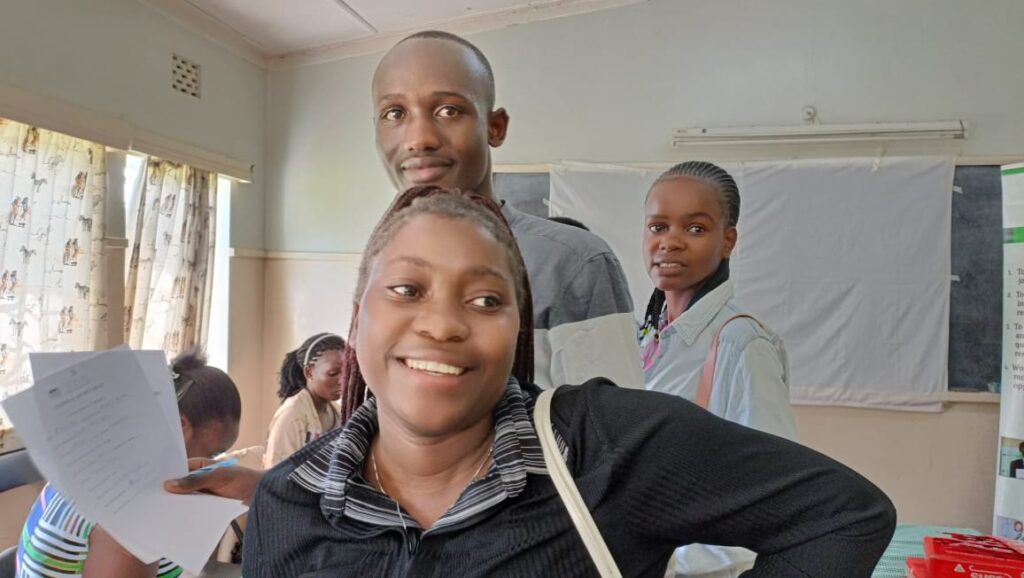
However, the role of health journalists goes beyond just clarifying facts. They have to walk on a fine line between offering helpful guidelines and avoiding alarmism to the public. In recent years with the health crisis of COVID-19 pandemic, health journalists proved vital in fighting misinformation. By giving extensive explanations on how the virus spread, importance of wearing masks and providing updates on health guidelines.
‘’When I first joined the newsroom, I was all over the place writing stories ranging from politics, business and human stories. With time, I realised I wanted to settle on one topic where people could identify me in that area since it was hectic to settle on everything. I also realized that there was gap in our Kisumu offices since the only health reporter had relocated to Nairobi and other reporters weren’t willing to take up the role, said Angela.
“To me, health journalism has become a very interesting area to pursue because it makes me feel as if I am offering solutions to people and giving a voice to the voiceless in matters concerning their health, disease outbreaks or new innovations in the field of medicine,’’ she said.
She notes that though health reporting is great, it has challenges too such as editors who may not easily publish your stories at the start, getting data and statistics from relevant sources and language barriers.
“Starting my health journalism journey, I could not get a platform to publish my stories and this discouraged me a great deal. Part of the reason was I was not perfect but with time I learned how to perfect and sharpen my skills,” she told the gathering which included experienced journalists, students from Maseno Universiy, Masinde Muliro University, a scientist from Kenya Medical Research Institute and a health advocate from Mission for Advocacy and Advisory for Young Generation (MAAYGO).
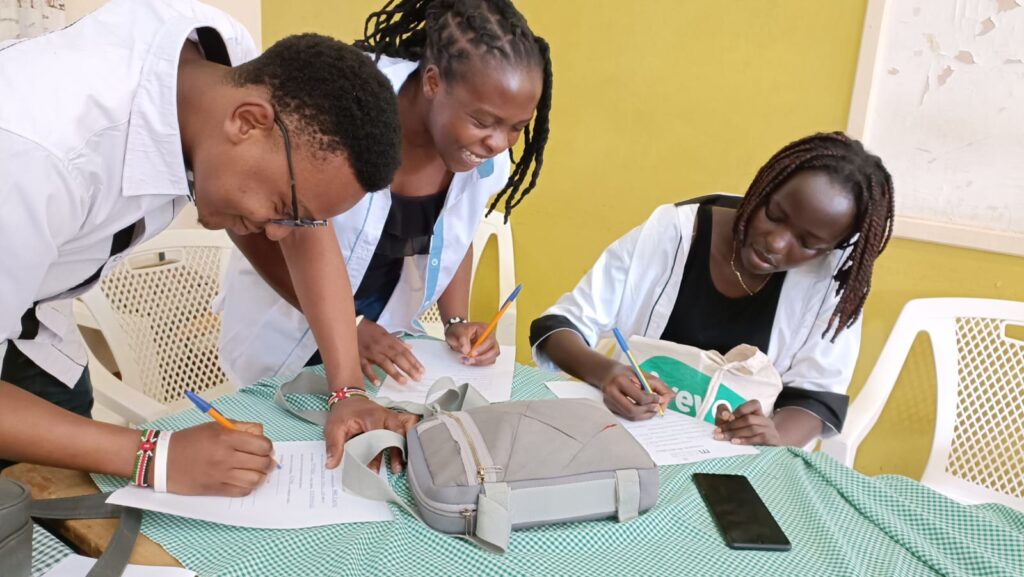
“To date getting data and statistics from the relevant sources at the right time remains a challenge,” she added, “as most scientists take journalists in circles, because they either don’t have the data or they don’t want to share it and at times because they are still waiting for official data from the Ministry of Health (MoH) which may not be forthcoming at the time I need it.”
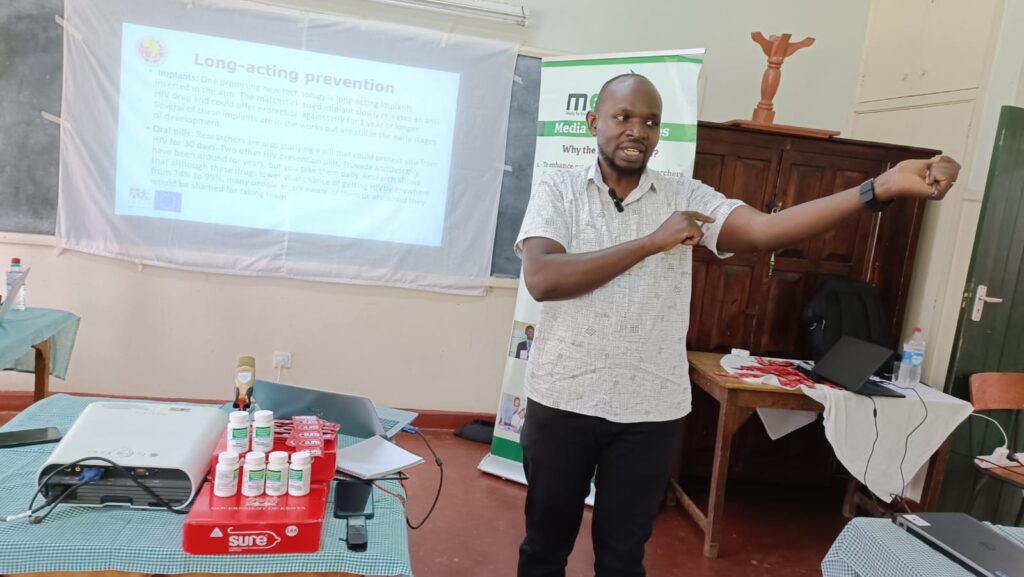
Language barrier is also a setback I have faced because when I am doing a story from the village and my source doesn’t know either English or Kiswahili, I opt to interview them in the local language which is a bit difficult as even with an interpreter may not relay the information as the source did,’’ said Ms Ochieng’.
“I actively began my health reporting journey back in 2021 as I discovered that this area was grossly under reported. After the outbreak of the COVID-19 pandemic, there was a call by the International Women’s Media Foundation that was looking for writers in Africa to train on reporting vaccines. I applied for it and fortunately got a chance,’’ said Laura Otieno, a star television journalist at Citizen TV based in western Kenya.
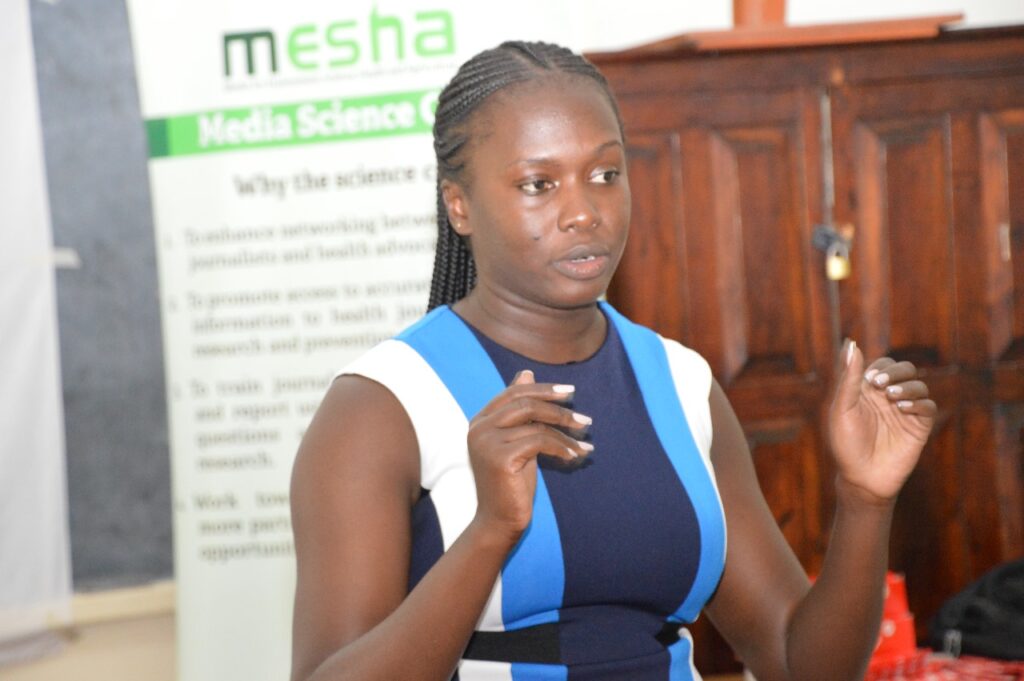
“The training lasted for six months and out of the twelve African journalists that attended I was the only Kenyan. As we were exchanging ideas I found out that they were much more experienced in health reporting than I was at the time. I was so inspired by them that I decided to venture into this path. The first story I wrote was about Malaria which was unfortunately not published in the media house I work for but it was published by MESHA owned Sayansi Magazine.’’
She further says that after that story, she decided to learn about how a proper health story is written and its features. She also decided to go out and find sources as she relied too much on documents and published materials. With that she has succeeded in writing very many and meaningful stories overcoming various challenges.
She also adds that health writing is a very sensitive area and journalists covering it should be patient and sympathetic to their sources. Some, she said, go through tough situations at work and hence once must tread carefully while handling them. Ms Otieno told the young minds to set a goal that they want to achieve with every story they tell, cautioning them to read widely about their subjects.
“What I hope to achieve with each story I write is to make a better one than the last considering the impact it will have on the lives of my readers. I love doing this because it helps people to become more aware about various health issues. It also helps me project the voice of the less heard in the society.”
“For those just starting, know that a journey of a thousand miles begins with the first step,” noted Ms Otieno who is also the vice chairperson of MESHA.
According to a statement from MESHA, the association has started to work with universities to provide an opportunity to lay a foundation with journalists early-on for science writing, and create a pipeline of informed journalists entering the Media Science Cafe program.
Working with journalism schools, said Aghan Daniel, the Secretary of the network, creates a lasting impact of telling stories on health and HIV prevention.
“Working with universities also serves as a model for entrenching more sustainable structures that support health journalism for posterity,” he added.


